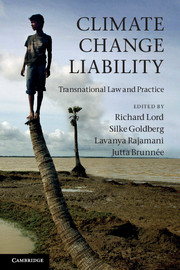Book contents
- Frontmatter
- Contents
- Contributors and Editorial Board members
- Foreword
- Acknowledgements
- Abbreviations
- Part I Legal, scientific and policy aspects
- Part II National laws
- Asia and Pacific
- Africa and the Middle East
- 10 Egypt
- 11 Israel
- 12 Kenya
- 13 South Africa
- Europe and Eurasia
- North America
- Central and South America
- Selected resources
- Index
- References
12 - Kenya
from Africa and the Middle East
Published online by Cambridge University Press: 05 June 2012
- Frontmatter
- Contents
- Contributors and Editorial Board members
- Foreword
- Acknowledgements
- Abbreviations
- Part I Legal, scientific and policy aspects
- Part II National laws
- Asia and Pacific
- Africa and the Middle East
- 10 Egypt
- 11 Israel
- 12 Kenya
- 13 South Africa
- Europe and Eurasia
- North America
- Central and South America
- Selected resources
- Index
- References
Summary
The Kenyan legal system
12.01The Republic of Kenya is a constitutional democracy whose primary sources of law are enumerated in Section 3 of the Judicature Act and the Constitution promulgated in August 2010 following a referendum. As a former British colony, Kenya’s legal system has drawn heavily on the English and Indian legal systems. Under the Judicature Act, the sources of Kenyan law are: (i) the Constitution; (ii) Acts of Parliament including subsidiary legislation; (iii) specific Acts of the Parliament of the United Kingdom; (iv) English statutes of general application in force in England on 12 August 1897; (v) the substance of common law and doctrines of equity; and (vi) African customary law. The common law, doctrines of equity and statutes of general application are applicable in ‘so far only as the circumstances of Kenya and its inhabitants permit and subject to such qualifications as those circumstances may render necessary’. African customary law is applicable in ‘civil cases in which one or more of the parties is subject to it or affected by it, so far as it is applicable and is not repugnant to justice and morality or inconsistent with any written law’.
12.02The Constitution is ‘the supreme law of the Republic’. It recognises ‘the general rules of international law’ as well as ‘any treaty or convention ratified by Kenya’ as forming part of the law of Kenya. ‘Any law, including customary law, that is inconsistent with the Constitution is void to the extent of the inconsistency, and any act or omission in contravention of the Constitution is invalid.’
- Type
- Chapter
- Information
- Climate Change LiabilityTransnational Law and Practice, pp. 296 - 318Publisher: Cambridge University PressPrint publication year: 2011
References
- 3
- Cited by



